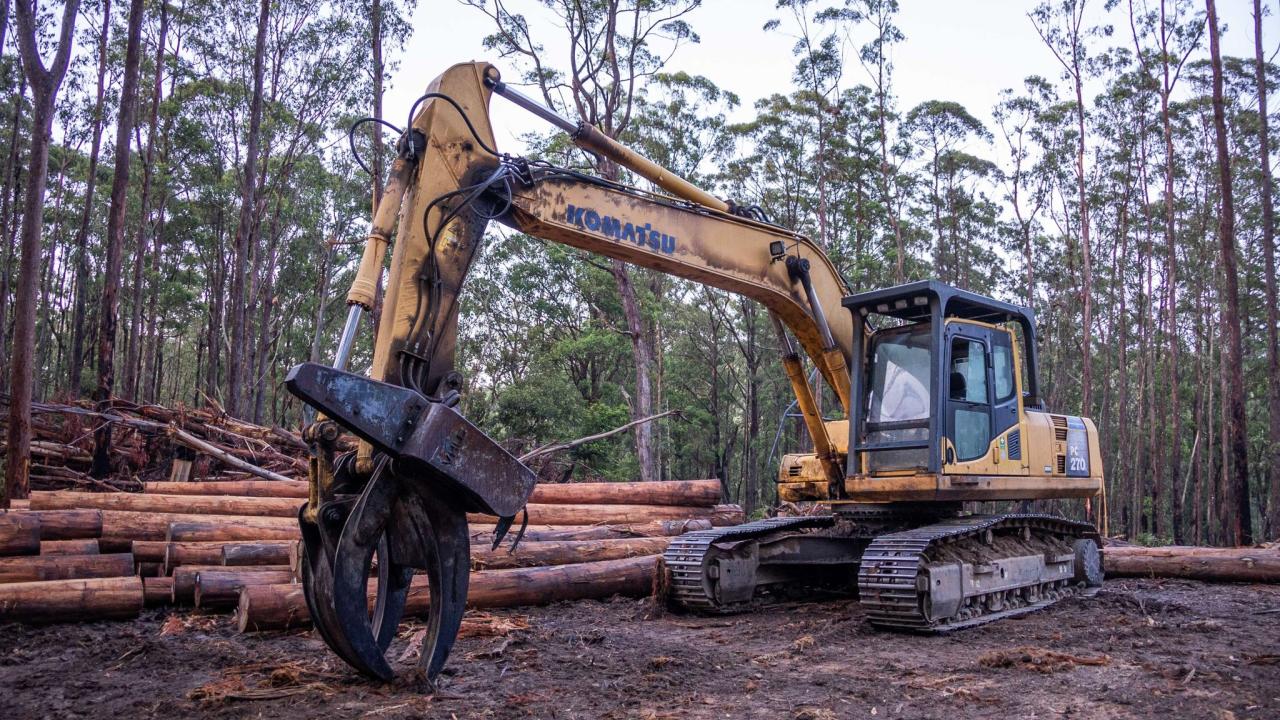Farmers fear impact of environment deal with Greens

An unexpected Australian Labor Party agreement with the Greens to overhaul the Environment Protection and Biodiversity Conservation (EPBC) Act is set to speed up the transition away from native forest logging to plantation timbers in Tasmania.
The “11th-hour” negotiation was announced by the Prime Minister in Canberra on Thursday just before federal parliament adjourned for the year.
The agreement allowed the bill to be pushed through the Senate that evening and it removes longstanding exemptions for native-forest logging which were carved out under Regional Forest Agreements (RFAs).
Native forest logging will now fall under stricter federal oversight and the state’s forestry industry is worried about long-term viability, job losses, and uncertainty about how - or if - the promised support fund and “transition” will compensate for reduced native-forest logging.
TasFarmers has warned that the secret Labour-Greens deal threatens land management and community safety.
The organisation said that members strongly oppose the agreement, particularly those affecting private forestry.
TasFarmers CEO Nathan Calman said the details of the deal remain largely unknown, and that industry and taxpayers deserved transparency.
“Because this handshake deal was struck to secure political support, we may not see the full details for another month or two,” Mr Calman said.
“We are urgently calling for clarity on how these changes will affect land management practices. Parliament risks making a mockery of due process by progressing reforms without disclosing the terms of the deal.
“It gives the strong impression that something is being hidden and that whatever it is will significantly affect native forestry on privately managed land. These changes may lead to poorer climate outcomes, not strengthen them, and will heighten community-safety risks.
“The swift passage of this legislation before the Senate committee reports early next year undermines proper scrutiny and disrespects the farmers who manage the majority of Tasmania’s landscape.
“We are seeing the consequences of emotional deal-making rather than evidence-based policy or genuine consultation with industry. The nation risks ending up with productive land locked up and impossible to manage.”
Mr Calman said Tasmanian farmers remain committed environmental stewards, but the looming restrictions on private forestry threaten the balance between environmental preservation and agricultural productivity.
“Likely changes to regrowth thresholds where regrown vegetation becomes classified as ‘protected bush’, could hinder essential practices that reduce bushfire fuel loads and manage invasive species. That means poorer environmental, economic, and safety outcomes,” he said.
The State Government is also deeply concerned Labor has “rushed to sell out Tasmania’s world-class native forestry industry and the thousands of jobs it supports”.
It said changes to the EPBC Act that make it easier to get renewable energy projects off the ground and simplify processes for industries like mining is welcome, however those changes should not come at the expense of regional forestry jobs in Tasmania.
Premier Jeremy Rockliff said there is a breathtaking lack of detail on the deal Labor has done with the Greens.
“I am deeply concerned this Labor-Green deal on EPBC Act changes has come at the expense of native forestry in Tasmania and regional jobs,” Premier Rockliff said.
“Notwithstanding the incredible lack of detail, the so-called support package is woefully inadequate to compensate for the direct and broader flow-on economic effects of this decision.”
Business, Industry and Resources minister Felix Ellis said Tasmanians remain in the dark about Labor’s “cloak-and-dagger deal” with the Greens on forestry.
“Thousands of Tasmanians work in the forestry industry, and it appears the Prime Minister has sold out our state and those workers to appease the Greens,” Minister Ellis said.
“Tasmanians don’t need Canberra trying to run roughshod over our State, our industries and our people.”
While some timber processors are bemoaning the pending changes to supply, one sawmiller and former Greens leader Kim Booth, has welcomed the move.
The owner of Timberworld, which operates two sawmills in the Meander Valley and a timber wholesale outlet in Glenorchy, only mills logs from trees that would otherwise be woodchipped or burned.
“The State Government has been running a bulldozer through the environment for years … the damage done under the RFA exemptions wouldn’t have happened under the EPBC Act so it’s way beyond time this was brought under control,” Mr Booth said.
“If the industry is complying with proper environmental protection laws then it’s got nothing to fear.
“In the long run it will be better for the industry not to be seen to be damaging the environment - everyone has to live on the planet and our children and grandchildren need to live in a world that ‘s safe and undamaged.
“This was inevitable and the exemptions should never have happened.”
Mr Booth blamed large donations by the timber industry and using forest workers as a “wedge” to garner votes at election time for the lack of proper protection of native forests and that plantations are the only economical and environmentally friendly way forward.
A $300 million “Forestry Growth Fund” is being set up to support timber workers and regional forestry communities through what the federal government framed as a modernisation and “transition” of the forestry sector.
The deal could also have implications for farms, especially where land-clearing or “high-risk clearing” has been involved.
The reforms scrap longstanding exemptions for “high-risk land clearing” and could mean that agricultural clearing projects will need to demonstrate they don’t cause unacceptable environmental damage and may require offsetting impacts such as ecological restoration elsewhere.
The National Farmers Federation has warned that changes to the “continuing use” provisions (which previously allowed certain routine vegetation management or partial clearing) could force even routine farmland management such as regrowth clearing, weed control and fire-risk management into complex federal approval processes.
It also argues the reforms could increase bushfire risk and impose a burden of red tape on many farms, especially in rural or regional areas.




Add new comment